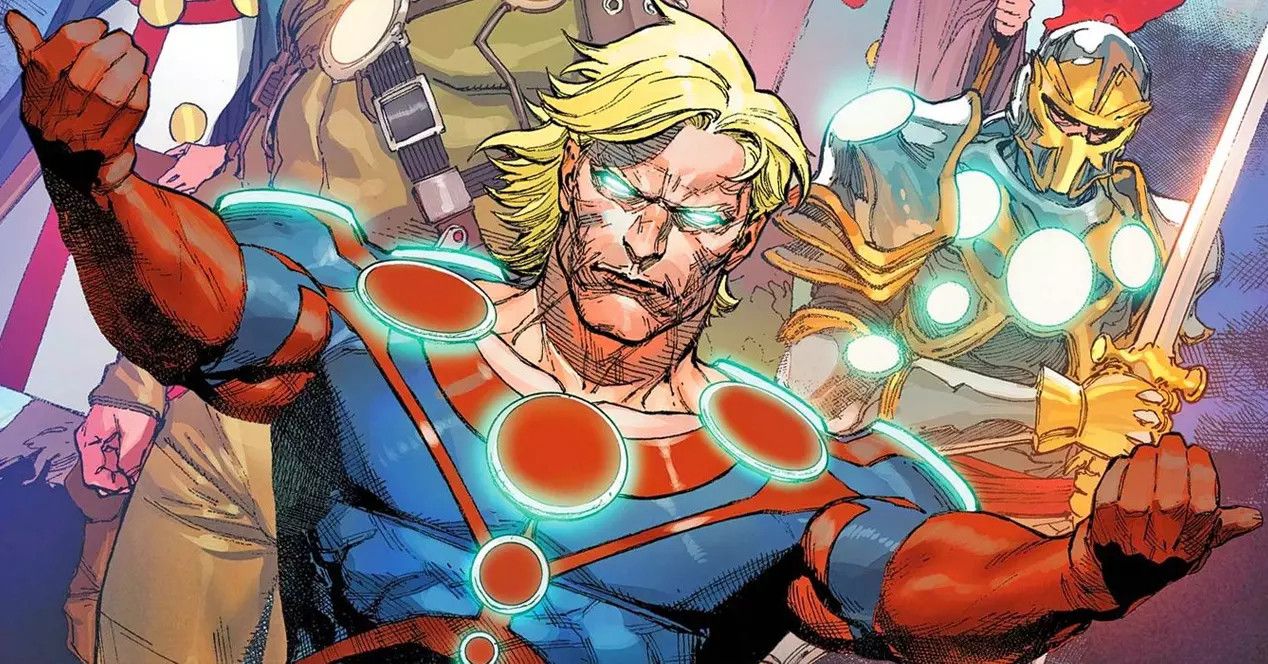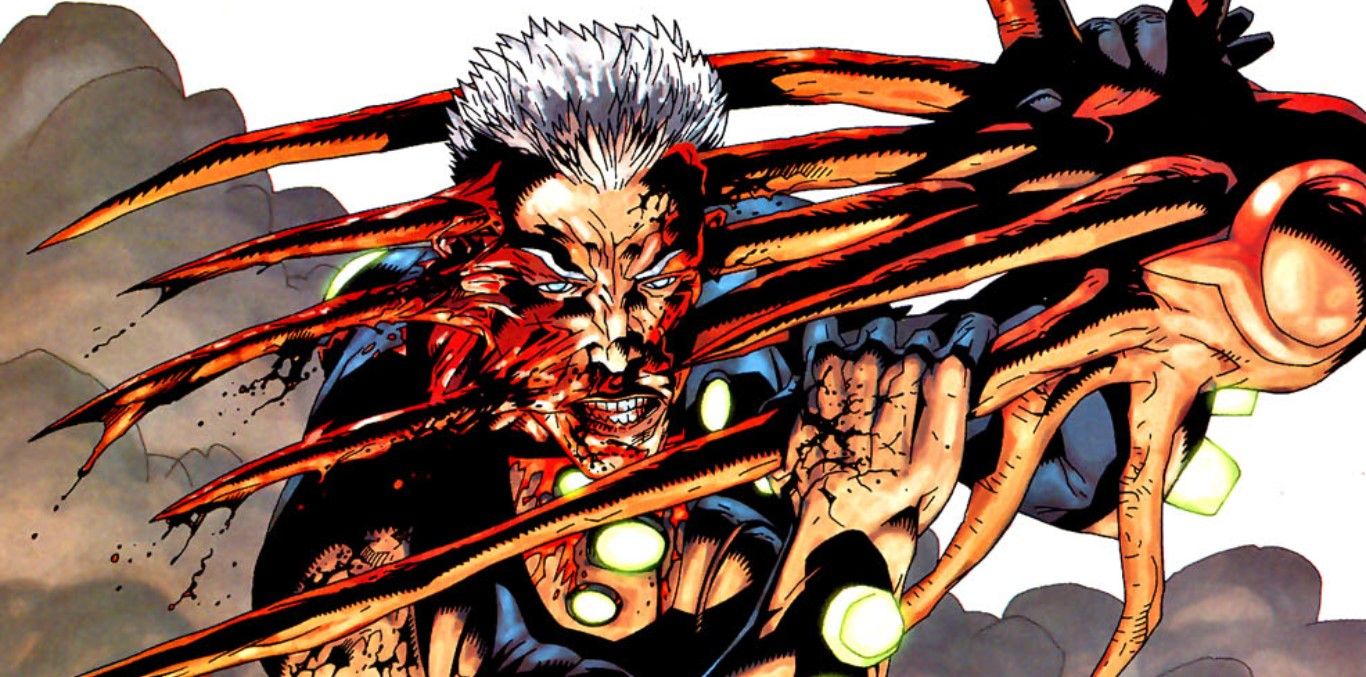The Eternals is one of Marvel Comics’ biggest franchises now, but there was a time the company tried turning it into an “adults only” comic series. The series included several elements that, if adapted for the screen, would have definitely resulted in the MCU's first R-rated film.
Created by Jack Kirby in 1976, the original Eternals series told of a race of ancient aliens known as the Celestials, who came to Earth a million years ago to create life as we know it. From their experiments came the Eternals, a race of god-like beings to protect humanity. Cancelled after nineteen issues, the series struggled to catch on with the comic-reading public in any significant way. There were several attempts through the years to make the Eternals major players in the Marvel Universe before the 2021 movie adaptation, most notably in 2006 Eternals miniseries from Neil Gaiman and John Romita, Jr. Yet perhaps the most overlooked of these attempts came in 2003: The Eternal by writer Chuck Austen and artist Kev Walker, published through the MAX line, Marvel’s imprint for mature readers.
A complete revamp of the entire concept, The Eternal is set in Earth’s prehistory, where the titular demigods are sent across the cosmos by their Celestial masters to mine raw materials from distant planets. Arriving on planet Earth, they evolve the proto-human species they find there into fully-developed Homo sapiens to use as slave labor for their mining operations. Things are complicated when the Eternals’ commander, Ikaeden, falls in love with a human woman, Jeska. The two of them break Celestial law and produce a son, causing a rift between Ikaeden and his sadistic second-in-command, Kurassus. Ikaeden ultimately decides to defy the Celestials and risk being exterminated, leading to a bloody conflict with Kurassus and those Eternals still loyal to their Celestial masters. As the Celestials prepare to arrive on Earth, Ikaeden marshals the remaining Eternals and their new human comrades to make a last stand against their masters.
The stage was set for an epic confrontation, but it was not to be. Originally intended as an ongoing series, the comic was cancelled after only six issues. Austen and Walker wrapped up their story in a rushed conclusion, and the series has since been mostly forgotten. Sparking controversy since its initial release due to the series’ graphic depictions of sex and violence, it’s easy to see why Marvel hasn’t kept The Eternal in print, especially in the wake of the family-friendly feature film adaptation. But the series serves as an interesting time capsule - an artifact of a time when Marvel was still trying to rebrand itself after declaring bankruptcy in the late nineties. The Marvel MAX line was one such initiative, Marvel’s attempt to cater to an older audience more interested in titles like The Sandman and Preacher. In that regard, The Eternal does feel more like a European sci-fi epic one might find in the likes of Heavy Metal magazine, as opposed to a more traditional superhero saga. Austen and Walker took Kirby’s initial concept and injected with the Old Testament-style sex and violence typically found in classical mythology. Even though there are more than a few cringe-worthy moments when viewed today, that unflinching approach to ultra-violence makes the stakes in the story feel very real in way simple superhuman punch-ups never could.
Ultimately, The Eternal never found its audience, and the overall culture at Marvel changed once the movie adaptations started raking in big numbers at the box office. The Marvel MAX line was curtailed significantly, and weird experiments like The Eternal became few and far between. The comics are still out there, however, providing a unique look into a time when Marvel was willing to turn The Eternals into an R-rated property.


